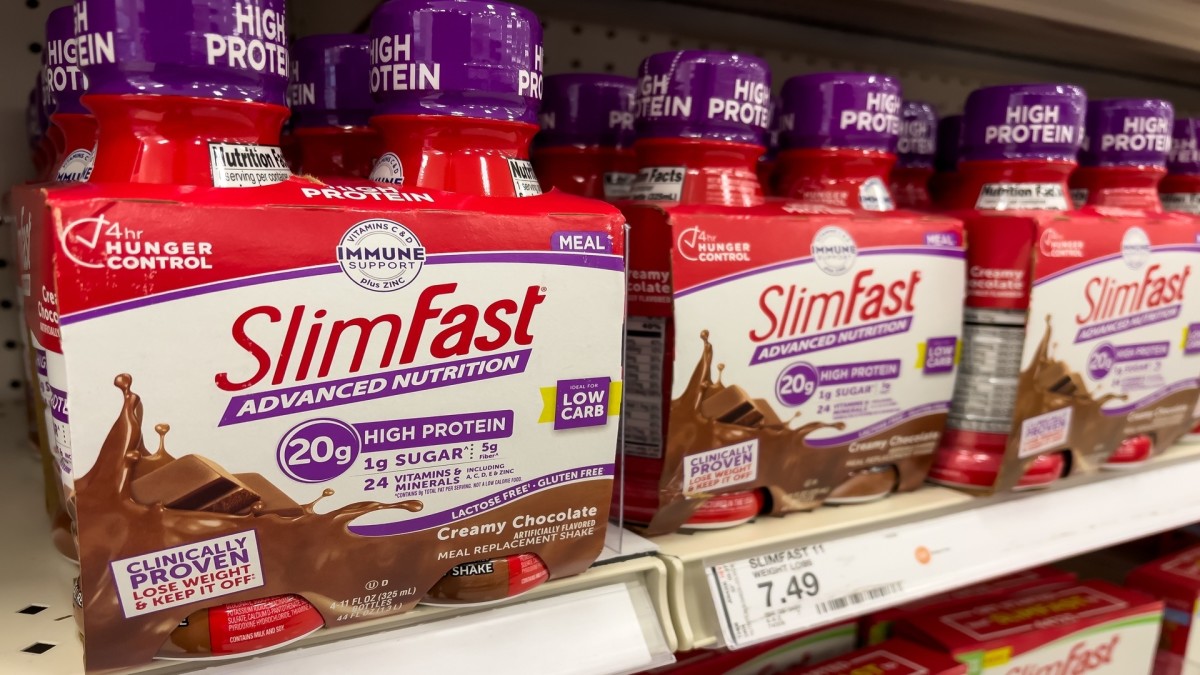Some may say, “Nothing tastes as good as skinny feels.” This diet culture mindset has long infiltrated popular culture, shaping beauty standards and fueling a multibillion-dollar industry built around society’s obsession with being “skinny.”
One of the biggest contributors is the rise of GLP-1 medications, such as Ozempic and Wegovy, which are viewed as quick weight-loss solutions. These drugs are not only changing consumer behavior, but also reshaping the food and wellness industries.
Grocery store shelves are now overflowing with sugar-free, low-calorie, and diet-branded products, proving how lucrative this trend has become. Now, two diet giants are joining forces to build a massive empire.
Splenda’s owner acquires SlimFast
Heartland Food Products Group, the parent company of the zero-calorie sweetener brand Splenda, has acquired the SlimFast brand from Glanbia for an undisclosed amount.
“The addition of SlimFast to the Heartland family, alongside our Splenda brand, reinforces our commitment to helping consumers live healthier, more balanced lives,” said Heartland Food Products Group CEO Ted Gelov in a press release.
“Both brands share a common purpose, empowering people to make better choices without sacrificing taste or enjoyment. Together, we can deliver trusted solutions in weight management and sugar reduction, two of the biggest consumer needs shaping the future of nutrition.”
However, SlimFast is no stranger to changing hands. The meal replacement brand has bounced between owners for more than a decade.
In 2014, Unilever (UL) sold SlimFast to Kainos Capital, and only four years later, the brand was bought by Glanbia in 2018 for $350 million.

Image source: Shutterstock
SlimFast becomes a financial burden for Glanbia
For Glanbia, SlimFast became a drag on its performance. In the first half of fiscal 2025, revenue from its Performance Nutrition sector fell nearly 4% year-over-year, making it the company’s only segment reporting a decline.
With the group overall growing 4.3%, SlimFast was flagged as the problem, since the company’s other sectors all reported revenue growth. Health & Nutrition increased by 6.5% and Dairy Nutrition by 14.1%.
Related: Hershey creates new guilt-free candy that’s a dream combo
Glanbia’s 2024 full year results revealed a non-cash impairment charge of $91.4 million on SlimFast, citing persistent challenges in the U.S. diet category. Performance Nutrition revenue in the Americas decreased 0.5%, primarily due to SlimFast.
The move to sell SlimFast aims to support the company’s next growth phase and pursue annual cost savings of at least $50 million by 2027.
Diet culture and supplement market surge
Despite Glanbia’s struggles with SlimFast, the broader market continues to grow.
According to Morgan Stanley, around 9% of the U.S. population is expected to use GLP-1s by 2035, with the global obesity drugs market projected to reach $105 billion by 2030.
“Food and beverage brands will need to adapt with healthier options and smaller package sizes,” said Morgan Stanley in the same study.
This trend aligns with the expansion of nutritional supplements. Grand View Research valued the U.S. nutritional supplements market at $112.6 billion in 2024 and predicts steady growth of 4.9% annually through 2030.
With 58.5% of adults using at least one supplement, and a third of children and adolescents doing the same, pairing SlimFast with Splenda’s strong association with “skinny” or diet culture could help the brand grow if Heartland Food Products Group manages it correctly.
“Food and beverage companies have long been focused on aligning their products with the better-for-you trends, anticipating shifts in consumer behavior due to the growing focus on health,” said The Smart Cube Senior Specialist Sheleena Jain, who has studied GLP-1 drugs, to The Food Institute.
“The rise of GLP-1s has accelerated these trends, but the industry was already moving toward healthier options such as reduced sugar.”
Related: 103-year-old iconic workwear brand sold amid financial struggles
#Splenda #parent #buys #legendary #diet #brand